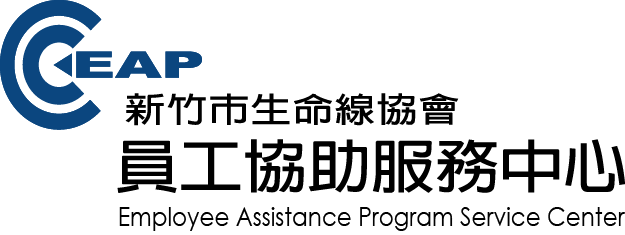EAP Service
Wellness
Drug Abuse/Alcohol Abuse
Depression/Anxiety Healthy
Diets/Workout Plan Stress Management
Mental Health
Workplace
Facilitation Adaption Work related
Transfer Career Development
Retirement Plan
Life
Legal / Financial Recreation
Family / Marital issues
Parenting / Family Care
Insurance / Life support
History of EAP
EAP in U.S.A.
| Developmental Stage | Year | Significant Events |
|---|---|---|
| Stage I (AA 12 steps— Alcoholics Suppression) |
1930-1959 | In 1935, Alcoholics Anonymous (A.A.) starts to play an important role in alcoholic suppression. |
| In 1940-1950, occupational counseling programs rose among industries to deal with working pressure from working shifts. | ||
| In 1959, Persnall developed a model to identify alcoholic employees. It is the former concepts and service model of Employee Assistance Program. | ||
| Stage II (Occupational Alcoholic Programs, OPA) |
1960-1979 | More and more industrials led occupational alcoholic programs in their companies. During this period, the program shifts from identifying alcoholic employees to a broad spectrum of life. |
| Stage III (Integrity of EAP) |
1980- | OAP transfer into Employee Assistance Programs. It is the whole service pack including work place, life and health. |
EAP in Taiwan
| Developmental Stage | Year | Significant Events |
|---|---|---|
| Stage I (Informal Paternalistic Intervention) |
Before 1980 | Year 1958, Catholic associations established Young Christian Workers (YCW) to help Christian young adults improving their work place adaption. |
| Year 1972, Panasonic started the projects of “Big Sister” to help the young adults in their company. | ||
| Year 1979, China Youth Corps (CYC) initiated Industrial Youth Service Group and Industrial Teacher-Chang Service among different cities in Taiwan. | ||
| Stage II (Mental Health and Life Counseling projects for labors.) |
1980-1994 | Year 1980, Mental Health and Life Counseling system was promoted by Ministry of Interior. |
| Year 1981, Ministry of Interior decided to enforce the adolescent workers in industry. Moreover, governments started to set counseling guidance system among mining workers. | ||
| Year 1982, Digital Equipment Corporation set internal counseling system in their industry. | ||
| Year 1988, the following companies in Taiwan started to follow the counseling projects. They are Vishay, Industrial Technology Research Institute, Texas Instruments, China Motor Corporation, Acer, TSMC, and Aerospace Industrial Development Corporation | ||
| Stage III (Integrity programs of EAP including Human Resource, Industrial Relations, Employee counseling, and industrial social work.) |
1994-2003 | Year 1994, Ministry of Labor started to use Employee Assistance Programs (EAP). |
| Year 1998, Ministry of Labor published The Guide Book for EAP and hold conference for EAP professionals. | ||
| Year 1999, in order to fit the need of EAP professions, Ministry of Labor invites different educational institutes to train EAP professionals. | ||
| Year 2000, the first external Employee Assistance Programs Center was established under Lifeline in Hsin Chu City. | ||
| Stage IV (Governments started to involve more in promoting EAP service and create a movement of EAP.) |
2003-now | Year 2009, Ministry of Labor published a Guidebook of EAPC Promotion for companies’ reference. |
| Year 2010, Ministry of Labor set helpline for EAP consultant, held promoting lecture, and develop a system for counselors to do counseling sessions in industry. | ||
| Year 2011, Ministry of Labor openly praised the entrepreneur which well-engaged in EAP service and create a model for other companies. |
Service Model and Comparison
| 1 | 2 | 3 |
|---|---|---|
| Problem Detecting System (Contract Companies) | Problem Assessment System (EPAC) | Problem Sloving System (Professional Resource) |
| Managers Employees Family Members | Assessments Short-term Consultation Professional Referral Case Management Training Courses Self Development Crisis Management | Psychological Counseling Workplace adaption Relationships Balancing work and life Parenting counsultaion Management counsultaion Psychiatrist and mental health legal consultaion Finanicial consultaion |
Service Type & Comparison
| Internal Model | External Model | Integrity Model | |
|---|---|---|---|
| Pros | Instant responding Fit the organizational culture and policy Well-collaborate with the administration system Easy to seek for help Easy to be managed |
Lower costs Variety of service Professional High confidentiality More trustworthy More professional links |
Familiar with organizational culture and policy Variety of service which can fit in the contract companies' needs Several ways to problem-detecting Instant intervention is available |
| Cons | Higher costs Service item are limited Hard to be trusted by employees |
Service is hardly change by the organizational policy and culture Slower responding Standardized service packages and procedure |
Cost is between internal and external model Overlap role and responsibility |

